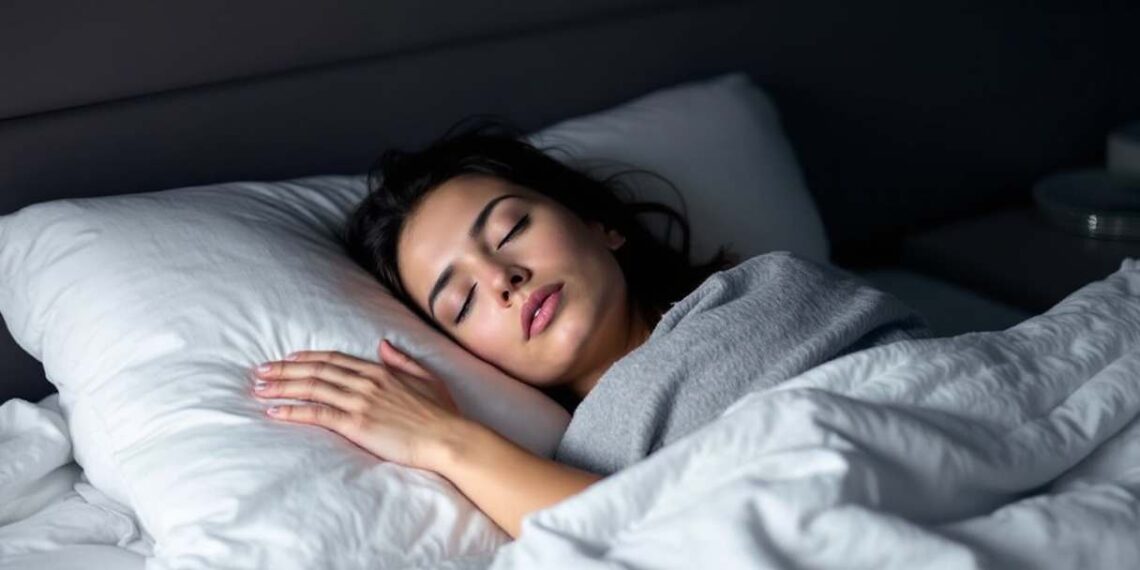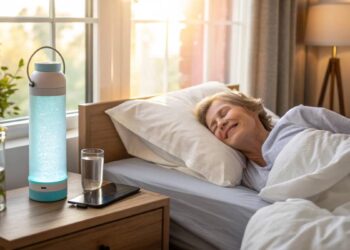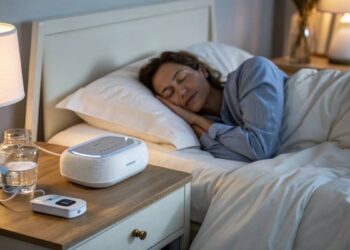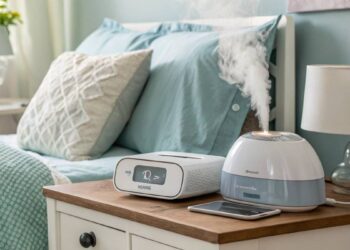Struggling with sleep apnea can turn restful nights into exhausting battles, leaving you groggy and irritable the next day. But what if you could ease those symptoms naturally? By making a few simple changes to your daily habits, diet, and bedtime routine, you could breathe easier and sleep better without relying on heavy machinery. Discover how these powerful, natural remedies can help you reclaim the deep, uninterrupted sleep your body craves.
Understanding Sleep Apnea
What is Sleep Apnea?
Sleep apnea is when your breathing stops and starts while you snooze. These pauses mess with your quality of sleep, leaving you tired and cranky the next day. This isn’t just about feeling sleepy at the office; it’s a real deal health issue that comes in a couple of flavors, like obstructive and central sleep apnea. Each has its own quirks. Knowing the difference can help you sleep better by picking the right fixes, even natural ones.
| Type of Sleep Apnea | Description |
|---|---|
| Obstructive Sleep Apnea | This kind happens when something blocks your throat, often the soft stuff in the back collapses as you sleep. |
| Central Sleep Apnea | This one’s on the brain, literally. It forgets to tell your muscles to breathe sometimes, related often to brain-related health problems. |
Curious for more details on these? Check out our article about the differences between central and obstructive sleep apnea.
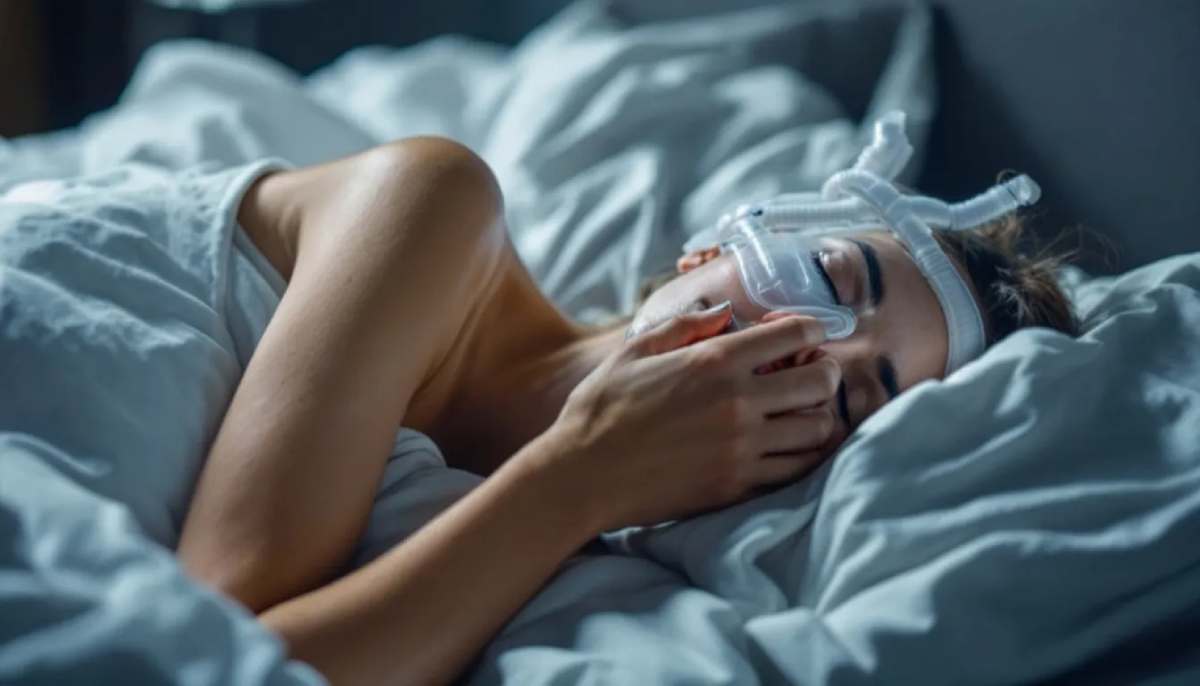
Common Symptoms of Sleep Apnea
Sleep apnea can show up in lots of ways, so spotting these signs is huge for figuring out how to fix it or find some alternative solutions.
Some usual suspects are:
| Symptom | Description |
|---|---|
| Loud Snoring | This one’s the classic — especially in obstructive sleep apnea. Snoring is a hint that something’s messing with the airflow. |
| Pauses in Breathing | Your sleep partner might notice you’re stopping breathing for a few seconds or longer. |
| Gasping or Choking | Scary as it sounds, this happens when you catch your breath. It might wake you up just a little. |
| Daytime Sleepiness | Feeling wiped out during the day? It can drag down both your get-up-and-go and your whole day vibe. |
| Morning Headaches | That achy head in the morning could be your body hinting that your sleep was off thanks to breathing stops. |
| Difficulty Focusing | Lack of proper shut-eye can mess with how you think, making it hard to concentrate or remember things. |
Need to learn more about these tell-tale signs? Jump into our article on sleep apnea symptoms. Spotting a pattern here might be your cue to switch up some habits or look into home remedies to keep this condition in check.
Natural Approaches for Sleep Apnea
Looking for a natural fix for sleep apnea? Change up your daily routine, munch on the right foods, and switch up how you snooze. These can do wonders for your sleep and ease those frustrating symptoms.
Lifestyle Changes
Tweaking some habits can make a big difference. Check out these swaps:
| Lifestyle Change | How It Helps with Sleep Apnea |
|---|---|
| Weight loss | Lightens the load on your airways, cutting down on symptoms. Got questions? Check out does weight loss help sleep apnea. |
| Skipping booze | Keeps your throat muscles in check, keeping apnea at bay. |
| Regular zzz schedule | Puts your internal clock in sync, making sleep better. |
| Tossing the smokes | Stops airway irritation, easing apnea troubles. |
| Kicking stress | Calms the nerves and dials up your sleep vibe. |
Dietary Adjustments
Chowing down right can ease those apnea battles. Focus on these bites:
| Dietary Adjustment | What’s the Deal? |
|---|---|
| Anti-inflammatory foods | Fill your plate with fruits, veggies, and grains to cut inflammation. |
| Cut out junk food | Trim sugars and fats for better sleep and a healthier weight. |
| No mega meals before bed | Keeps your tummy happy and your sleep uninterrupted. |
Sleep Positioning
How you sleep changes everything. Terrible cramps or glorious snoozes? You choose:
| Sleep Position | Benefits and How To Do It |
|---|---|
| Side sleeping | Keeps your airway clear and is the top pick for apnea sufferers. Curious? Head to best sleep position sleep apnea. |
| Head up high | A wedge pillow can prop you up just right for better breathing. |
| Ditch back sleeping | On your back, things fall back. Nip that in the bud by rolling over. |
Mixing in these natural tweaks can soothe those pesky apnea issues. You’ll not only sleep better but feel better all around! If you need more ideas beyond these tips, maybe poke around alternatives to cpap for some fresh takes.
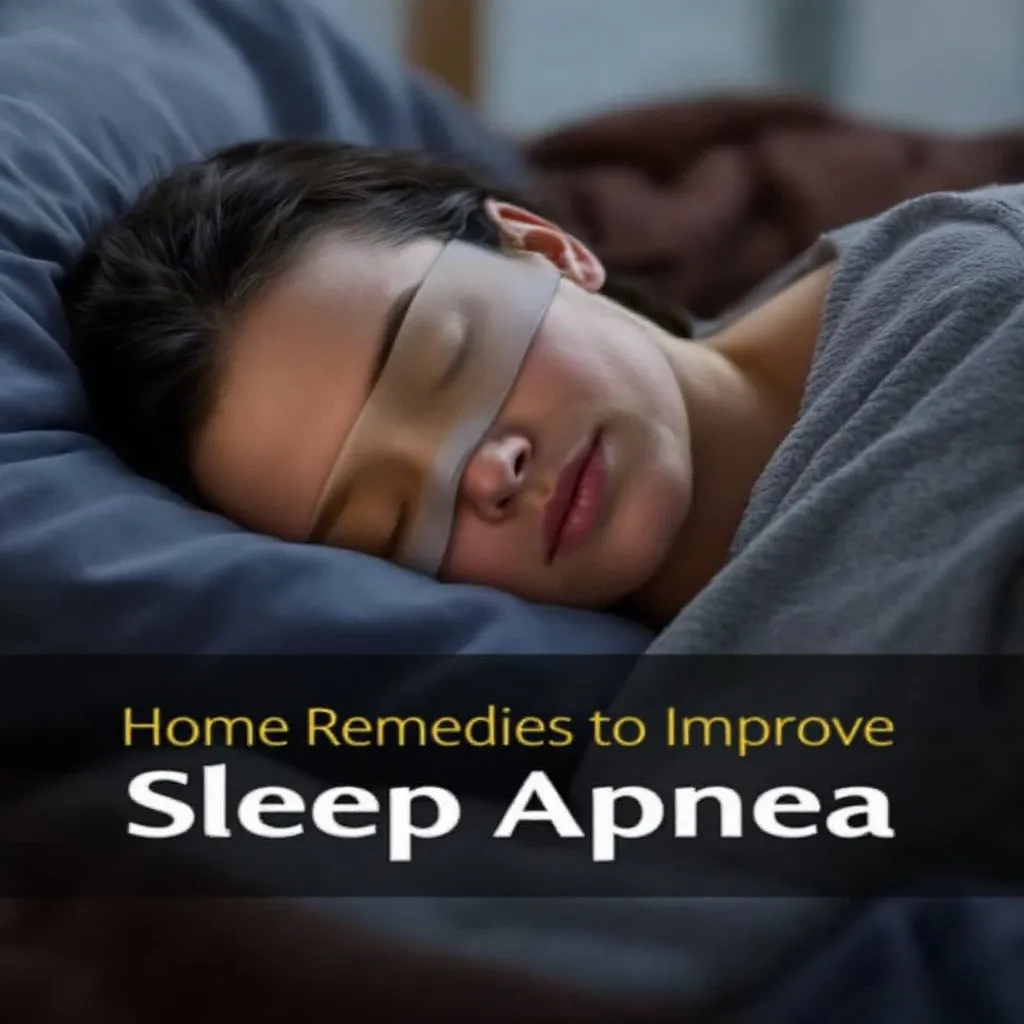
Herbal Remedies for Sleep Apnea
Using herbs might just be the trick for easing sleep apnea by helping you chill out and catch some quality Z’s.
Chamomile
Chamomile’s that go-to herb everyone talks about when feeling stressed. It might ease the jitters and help you snooze better. Sipping on a cup of chamomile tea before hitting the hay could mean quicker snooze-town arrival and deeper dreams.
| Dosage | Form | Effects |
|---|---|---|
| 1-2 cups of tea | Herbal tea | Relaxing, helps you sleep |
However, if you have a thing against ragweed, you might want to skip chamomile. Some folks get a bit snuffly or itchy. Curious about what kicks off sleep apnea? Take a peek at our piece on what triggers sleep apnea.
Valerian Root
When bedtime feels like a never-ending cycle of tossing and turning, valerian root might be your bedtime buddy. Commonly used for tackling insomnia and boosting snooze time, it ramps up GABA, the brain’s chill-potion.
| Dosage | Form | Effects |
|---|---|---|
| 300-600 mg | Capsules, tea, tincture | Better sleep, fall asleep faster |
As with anything, give your doc a shout before adding valerian root to your routine, especially if meds are already in the mix. For more snooze solutions, maybe ditch the CPAP and check out other sleep aids.
Lavender
Lavender isn’t just about smelling nice; it’s about mellow vibes. Often found in aromatherapy, it can ease stress and up your sleep game. Think oils, lotions, or a nighttime brew.
| Dosage | Form | Effects |
|---|---|---|
| Few drops | Essential oil, dried flowers | Relaxing, stress buster |
Studies say that sniffing lavender oil before bed can seriously boost sleep quality. For more sleep talk, have a gander at our article on kids and sleep apnea.
Bringing chamomile, valerian, and lavender into your routine might just give you that get-out-jail-free card from restless nights. These herbal heroes could lead to a snugger, more peaceful sleep and up the ante on feeling good!
Aromatherapy and Sleep Apnea
Ever thought some calming scents might help you drift off to dreamland? Aromatherapy could be your golden ticket to better sleep, especially if you’re wrestling with sleep apnea. By using essential oils, you create a chill zone that calms your mind before you hit the sheets.
Essential Oils for Better Sleep
If scents were superheroes, these essential oils would be the dream team for nodding off. Check out this list of sleepy-time saviors and their superpowers:
| Essential Oil | What It Does |
|---|---|
| Lavender | Like a bedtime whisper, lavender calms nerves and helps you snooze sweetly. |
| Chamomile | Regularly used for winding down, this flowery friend tackles insomnia. |
| Bergamot | Lifts your spirits while bringing on the zen, paving the way for a restful sleep. |
| Cedarwood | Its earthy aroma gently coaxes your mind and muscles into slumber mode. |
| Ylang Ylang | Tackles anxiety like a pro, helping you sail into a restful sleep. |
Swirling these oils into your evening routine might just be the magic touch for those dealing with pesky sleep apnea. For more nifty deets, swing by our page on sleep apnea symptoms.
Inhalation Techniques
Breathing in these oils might just do the trick, giving you nearly instant calm. Here’s how you can get started:
Diffusion: Got a diffuser? Perfect! Just let it mist the scent around your room for an oasis of calm.
Direct Inhalation: Pop a few drops on a cotton ball or tissue. Sniff the aroma lingering in the air for a few minutes.
Steam Inhalation: Drip a few drops into a steamy bowl of hot water. Cover your head with a towel and inhale the steam. It’s great if stuffiness from apnea is a problem.
Trying something new like aromatherapy might just be the helping hand you need. Teaming it up with other cool natural sleep apnea remedies could be a killer combo for keeping those sleepy struggles at bay.
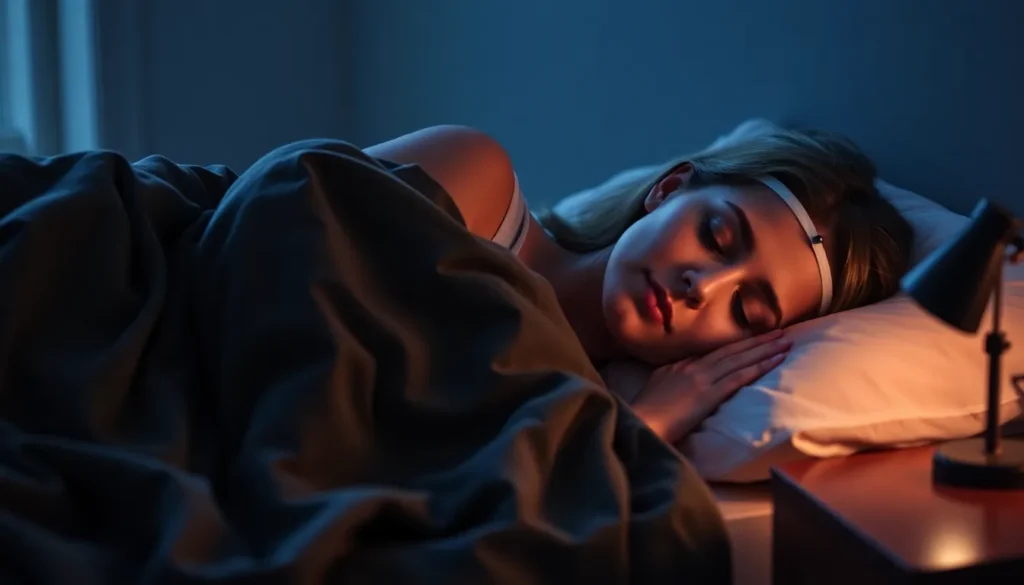
Home Remedies to Improve Sleep Apnea
Trying some simple home tricks can really help with sleep apnea. Keep an eye on your weight and get moving—your sleep might thank you for it.
Weight Management
Shedding a few pounds could make a huge difference if you’re dealing with sleep apnea. Extra weight, especially around your neck, can put the squeeze on your breathing passages at night. Dropping some weight can be like a snore-reduction plan.
Even just a little weight loss is a win! Check out how losing weight might help:
| Weight Loss Percentage | What Could Get Better |
|---|---|
| 5% | A little less nighttime gasping |
| 10% | Breathing easier when you snooze |
| 15% | Maybe hush those loud night noises |
| 20% | Bye-bye sleep apnea symptoms? |
Interested in how slimming down might help your sleep? Scroll over to our article on does weight loss help sleep apnea for some more detailed notes.
Regular Exercise Routine
Breaking a sweat isn’t just for getting fit—it might also help manage sleep apnea. With some regular exercise, you could lose weight, feel your heart thanking you, and catch better Z’s. Cardio, some strength exercises, or even a bit of yoga could do wonders.
Here’s the lowdown on exercises that might do the trick:
| Type of Exercise | How Long to Spend | Why It’s Worth It |
|---|---|---|
| Aerobic Exercise (e.g., brisk walking, cycling) | 150 minutes a week | Keeps the heart happy and helps with trimming down |
| Strength Training | 2-3 times a week | Helps burn calories even when resting and tones up muscles |
| Yoga | 20-30 minutes each time | Chills you out and dials down stress |
Picking exercises that you actually enjoy doing can make it easier to stick to the plan. Not only does moving around keep the scale in your favor, but it can also help you unwind and get better shut-eye. For more tidbits on sleep apnea and staying active, hop on over to our article on pediatric sleep apnea symptoms.
Mixing these tips into everyday life might just be the secret to handling sleep apnea better. Staying mindful of your weight and keeping up with exercise are doable options for anyone looking to rest easy.
Relaxation Techniques for Sleep Apnea
When life’s a bit too much, trying out some chill methods might just help folks grappling with sleep apnea. They can dial down stress, make snoozing better, and even ease up the pesky symptoms.
Guided Meditation
Imagine having someone sweet-talk you into a calm oasis, that’s guided meditation for ya! Whether it’s a voice from a recording or a real-life guru, they guide you into calming your mind and body. Especially good for folks with sleep troubles.
Give me the lowdown on how this helps sleep apnea folks:
- Less anxiety, so you worry less about falling asleep.
- Easier to relax before hitting the hay.
- Sharpens your focus on breathing right.
For starters, there are plenty of apps and vids online that cater specially for snooze-friendly guided sessions. Who knows, with regular meditating, you might just cut down on those sleep apnea wake-ups.
Progressive Muscle Relaxation
Progressive what-now? Progressive muscle relaxation (PMR) is like giving your body a mini-vacation. All you do is clench and release different muscles to help them chill out.
Here’s how it rolls:
- Lounge comfortably (on the couch or bed).
- Begin at your toes, squeeze ’em for about 5 seconds.
- Let go and groove on the relaxed vibe.
- Work your way up: calves, thighs, belly, arms, face…take a tour of peacefulness!
This technique not just lets your body sink into relaxation land but it dials down stress too – a sneaky culprit worsening sleep apnea. Try adding this into your nightly routine for max soothing vibes.
| Chill Technique | Perks | How Often to Groove |
|---|---|---|
| Guided Meditation | Less stress, killer breathing focus | Daily, wind down before bed |
| Progressive Muscle Relaxation | Total body chill, stress downer | 3-4 times each week |
Oozing relaxation through these techniques can boost the impact of other au naturel sleep apnea fixes. Want deeper dives? Check out how to spot sleep apnea symptoms and the low-down on what causes sleep apnea.
Sleep Hygiene Tips for Sleep Apnea
Getting some decent shut-eye is key for those wrestling with sleep apnea. We’re looking at two big things: setting your bedtime groove and making your sleep space snug as a bug in a rug.
Establishing a Bedtime Routine
Having a regular bedtime can be a game-changer for folks with sleep apnea. It’s like giving your brain a heads-up that it’s time to hit the hay.
Here’s a cheat sheet for a bedtime ritual that might just do the trick:
| Activity | Duration |
|---|---|
| Chill time (reading, stretching) | 30 minutes |
| Cut the screen time (TV, phones, tablets) | 1 hour |
| Unwind (meditation, deep breathing) | 10-15 minutes |
| Get ready for bed (brush teeth, jammies on) | 10-15 minutes |
Mixing these habits into your night can make your evenings all about calm vibes, setting the stage for good sleep. If you wanna dive deeper into relaxation, check out some guided meditation.
Creating a Comfortable Sleep Environment
Turning your bedroom into a cozy nest is a must, especially if sleep apnea’s in the picture. Here’s what might help:
- Mattress and Pillows: Find a mattress and pillow combo that make your sleeping style comfy. Check out Best sleep position for sleep apnea for pointers on this.
- Room Temperature: Keep that room cool and steady for max comfort.
- Light and Noise Control: Blackout curtains, sound machines, or earplugs can keep the “zzzz” peaceful.
- Decluttering: Keeping things tidy can soothe the mind and help you relax.
Focusing on these little details can turn your room into the ultimate sleep haven. For more tips on handling those pesky sleep apnea symptoms, take a peek at sleep apnea symptoms.
Seeking Professional Advice for Sleep Apnea
Importance of Consultation
If sleep apnea’s got you tossing and turning, it’s high time for a professional chat. Doctors aren’t just helpful—they’re essential for figuring out what exactly is going on and how bad it really is. Taking action sooner rather than later can stop those nasty little side effects like heart problems or walking around like a zombie during the day. It’s like having GPS for your health journey!
Here’s why making that doctor’s appointment is a game-changer:
| What’s the Point? | Why It Matters |
|---|---|
| Getting It Right | They’ll pinpoint if it’s obstructive or central sleep apnea messing with your rest. Curious about the difference? We’ve nailed it down in our central vs obstructive sleep apnea article. |
| Custom Roadmap | Your doc crafts a game plan, whether it’s tweaks in your lifestyle, natural shortcuts, or medical fixes. |
| Keeping Tabs on You | They’ll monitor how you’re doing and adjust the plans as needed—no flying blind! |
| Tackling Extra Baggage | Got extra health hiccups like heart issues or weight gain? Your doc will help sort those out too. Check our piece on the link between sleep apnea and heart problems if you want the full scoop. |
Available Medical Treatments
As for sleep apnea treatments, there are plenty of options on the table—from simple lifestyle tweaks to getting down and dirty with surgery. Here’s what’s in the treatment toolbox:
| What it is | What it does |
|---|---|
| CPAP Machines | This gadget pumps air through a mask to keep your breathing steady while you snooze. Skeptical? Our alternatives to CPAP page can hook you up with other ideas. |
| Mouth Devices | Tailor-made gizmos that nudge your jaw or tongue to clear the airway—perfect for keeping you breathing easy. |
| Surgical Solutions | Procedures like uvulopalatopharyngoplasty (say that three times fast!) can remove blockages. Interested in success rates? Peek at our info on sleep apnea surgery success. |
| Position Play | Sometimes, just rolling onto your side helps loads. Want to know if you’re sleeping in the sweet spot? Get the lowdown in our guide to the best sleep position for sleep apnea. |
Involving a healthcare whiz ensures you get the right tests and treatment tailored to you. If you’re on the fence about whether you need a doctor, think of it as an investment in better zzz’s. And if you’re scratching your head about those sleep apnea symptoms, check out our article on sleep apnea symptoms to see if any ring a bell.
Conclusion
Tackling sleep apnea doesn’t have to mean complicated machines or invasive treatments. With some smart lifestyle tweaks, mindful eating, and a few natural remedies, you can ease your symptoms and finally enjoy the restful sleep you’ve been missing. Whether it’s swapping sleep positions, adding calming herbs to your routine, or embracing relaxation techniques, these simple changes can make all the difference. It’s time to take back control of your nights and wake up feeling refreshed, energized, and ready to take on the day.
FAQs
What is sleep apnea, and how do I know if I have it?
Sleep apnea is a condition where breathing repeatedly stops during sleep. Common signs include loud snoring, gasping for air, and daytime fatigue. If you suspect you have it, consult a healthcare provider for diagnosis.
Can lifestyle changes help reduce sleep apnea symptoms?
Yes, losing weight, avoiding alcohol, and quitting smoking can significantly reduce sleep apnea symptoms by easing pressure on your airways.
What are the best natural sleep positions for sleep apnea?
Side sleeping is generally recommended for sleep apnea sufferers, as it keeps airways open and reduces obstruction. Elevating your head with a wedge pillow can also help.
How do herbal remedies like chamomile and valerian help with sleep apnea?
Chamomile and valerian roots promote relaxation and better sleep, which can ease some symptoms of sleep apnea by helping you stay calm and fall asleep faster.
Is aromatherapy effective for treating sleep apnea?
Aromatherapy, using essential oils like lavender and chamomile, can create a calming environment that may improve sleep quality, though it’s not a direct cure for sleep apnea.
Resources
Sleep Apnea Awareness: Signs, Symptoms, and Solutions
https://viralrang.com/sleep-apnea-signs-symptoms-solutions-guide/

